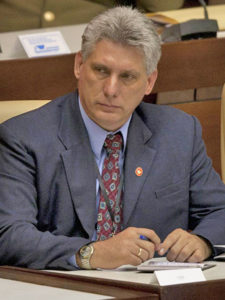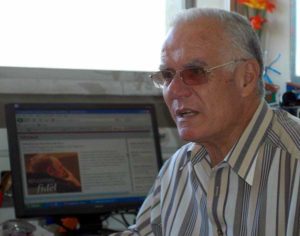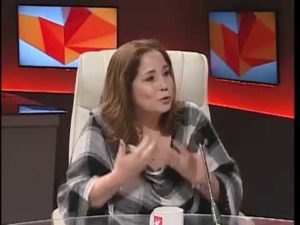
In a press law, transparency is essential
HAVANA — We journalists in Cuba know that a law on the press, i.e. the media, is coming. We know it because of the announcement of the development of a policy on communications, which generally ends up signed into law, approved by the National Assembly, or into Law-Decree, approved by the Council of State.
We also intuit it, because several events in the past several months have made evident, more than ever before, our need for a standard that regulates and protects our profession.
We have witnessed the arrest of a group of journalists in Guantánamo — unexplained by the authorities — after the fall of Hurricane Mathew; of ugly expressions of disrespect in the social networks among colleagues; of strings of postings in blogs that diminish the main debate and encourage division; of dismissive attitudes by members of the leadership of the Cuban Journalists’ Union (UPEC) toward other journalists; of sanctions and ousters, and above all of our incapacity as a guild to overcome mere discrepancies of a personal nature to discuss at length the fate of our profession.

These events have stirred us professionals but, far from encouraging us to solve conflicts and establish rules that apply to all, are separating us into “sides” that are rather ridiculous, if not totally unwise, to protect our journalism.
While all this happens, only a few people are working in the drafting of the Law. For a while now, First Vice President Miguel Díaz Canel has been meeting daily with the leadership of the UPEC and journalists from various provincial media.
According to reports so far, there are three issues on which the Vice President has shown the greatest interest: (1) The economic autonomy and financing mechanisms of the media; (2) informative policy and secrecy, and (3) the role of young people.
In late 2015, a workshop was held for leaders of the Cuban press “to share experiences about the management of the public media in Cuba and Latin America.” The Communist Party of Cuba instructed the UPEC to create a model of press.
“The management of the public media is one of the main issues this year at the [International] Institute [of Journalism] and its treatment in the institute’s courses, workshops and graduate clubs is intended to satisfy a request made by the Party through the First Vice President of the Councils of State and Ministers, Miguel Díaz-Canel, that the UPEC should work on the construction of a Cuban model of the press.”
That intention was reiterated in the UPEC proclamation for the next Congress of Journalists, to be held this year.
“We have before us the urgent task of changing the model of the press to respond to historic complaints from professionals and society and, at the same time, to respond to the deep cultural and technological changes that communication is experiencing in the age of the Internet and social platforms.”
It would seem that time and the mistakes we constantly repeat have not taught us anything. And that dialogue, in the effort to identify common challenges and reach concrete accord, can contribute a lot more than confrontation, in the current circumstances.
Major pending questions
The context of our media demands — more than needs — the regulation of our professional practices. Far from thinking of a law as a measure that inhibits the full exercise of the press, it is evident that its absence weakens the independence of our profession, which should be recognized by a legal instrument that sets out its terms.
Otherwise, many questions are left unanswered. Who can be granted official accreditation? What criteria determine such a grant? Who regulates access to official sources? What is public information? What are the State’s limits for secrecy? Who censors words, full reporting, television programs, the appearance of people or the mere mention of a subject? How is this decided without reaching the point of arbitrariness?
Who are represented by the Union of Cuban Journalists (UPEC)? Who represents the Cuban journalists who are not members of the UPEC? Have non-state media a right to exist? What would be the Communist Party’s role with regard to the media? Are all the private media alternative media, or vice versa? Under what terms and/or conditions is it proper for a journalist to collaborate with several media?

What are the “correct” methods of financing for the media in Cuba? Do journalists who collaborate with foreign or private media do so solely for economic reasons? Are the journalists who work in the state-run media always in accord with their employer’s editorial policy? And, above all, why isn’t there an open discussion among all parties about the communications policy that has been in the drafting stage for so long?
Important theoretical contributions have been made in Cuba. Julio García Luis, a teacher of many generations of journalists and communicators, said that the lack of a referent from the societies that have followed the road of socialism “have left the field open so that the liberal model can dress up at will as an emanation of common sense and the natural right to freedom of conscience and expression.”
But, of course, he also says that socialism has been incapable of creating a better model of the press.
How is it possible that a society intent on being more just cannot generate a press system capable of taking on its functions fully? Journalism, Julio also wrote, does not have a political or ideological seal a priori; the seal is imposed by the class or group that utilizes the media.

No model was ever forged in the revolutionary experiences prior to the Cuban Revolution. Today, the big challenge for our project is founding a pattern that integrates the history of the Cuban revolutionary press with its function in the new scenarios, a pattern that will make journalism evolve and define if (unfortunately) the Cuban press will be acknowledged only in the state-run media or broaden its scope.
Besides, as journalist Rosa Miriam Elizalde writes in her doctoral thesis, “without a new policy for social communication, it is impossible to strengthen the social consensus to carry out the deep socio-economic transformations the country is going through.” In her research, Elizalde identifies “the nonexistence of strategic and integral thought and action on matters of communication” as the basic problem of Cuban society on this issue.
Everyone is aware of the deficiencies of the Cuban press system today. For exactly that reason, the construction of a model, a policy, a law, should not be carried out behind the backs of the majority of the professionals who are most affected by it. In an environment where the raw material is information, the methodology to draft and discuss that guiding document is in itself incoherent.
The lack of public services and channels for participation and popular access will always be a problem in any media system. So will the lack of transparency toward its own professionals.


